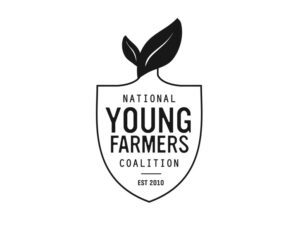May 19, 2025Young Farmers group condemns House SNAP, ag cuts
The National Young Farmers Coalition (Young Farmers) is sounding the alarm about devastating cuts to the Supplemental Nutrition Assistance Program (SNAP) and other ag programs.
The House Agriculture Committee’s May 13-14 markup of the Budget Reconciliation bill advances deep cuts to SNAP, nutrition programs and sidelines key investments for the next generation of farmers, according to a news release.
“This budget proposal is a betrayal of the values that sustain our food system,” Erin Foster West, Young Farmers’ policy campaigns director, said in the release. “These are not the investments young farmers need. Instead of passing a bipartisan Farm Bill that builds resilience for farmers and families alike, this bill fast-tracks harmful cuts to nutrition programs that serve as both a safety net for families and a revenue stream for farmers. It trades long-term food security for short-term austerity.”
The legislation proposes more than $300 billion in cuts from the nutrition title of the Farm Bill — specifically targeting SNAP — at a time when grocery prices remain high and small farms rely on local market sales to remain viable. SNAP is one of the few programs that supports both food access and farm viability simultaneously, according to the release.

“Accepting SNAP is essential,” Kaitlyn Kimball of Sunset Farm in Connecticut, a young farmer and SNAP-authorized vendor, said in the release. “It makes our produce accessible and supports our business. Cutting this program means cutting off our customers and cutting into our livelihoods.”
SNAP supports more than 42 million Americans per month, including children, seniors, veterans and working families. It also injects billions into the local food economy — supporting roughly 400,000 jobs across farms, grocery stores and markets. The proposed bill would impose new eligibility restrictions, work requirements and other changes that could kick at least 3 million people out of the program, according to the Congressional Budget Office, while forcing states to assume new costs they cannot afford.
“SNAP isn’t just an anti-poverty program — it’s farm policy,” David Howard, the coalition’s policy development director, said in the release. “And young farmers can’t thrive in a system that forces us to choose between feeding our communities and supporting our businesses. Congress must reject this bill and return to the work of crafting a bipartisan Farm Bill that reflects the needs of a sustainable, inclusive, and resilient food system.”
While the Committee majority claimed the bill invests in the farm economy, the bill doubles down on increased Title I subsidies that primarily benefit large commodity operations. It does so at the expense of nutrition programs, climate-resilient conservation investments, and equitable access to land and resources, according to the release.
The National Young Farmers Coalition urges lawmakers to reject the reconciliation bill and its $300 billion in SNAP cuts and protect SNAP as a food access program and economic driver in rural communities.
The coalition also wants to preserve climate priorities within the Inflation Reduction Act conservation funding that helps farmers adopt climate-resilient practices and support a full, bipartisan farm bill that equitably supports all farmers — not only the largest and wealthiest operations, according to the release.

















